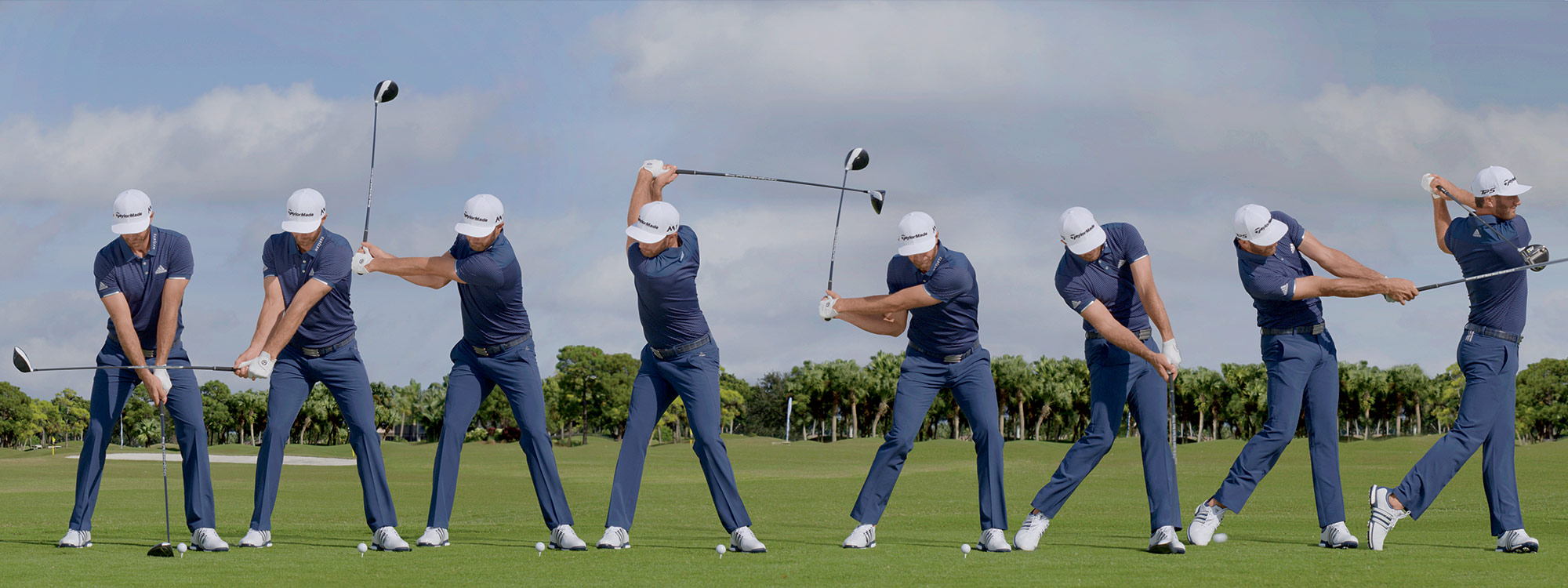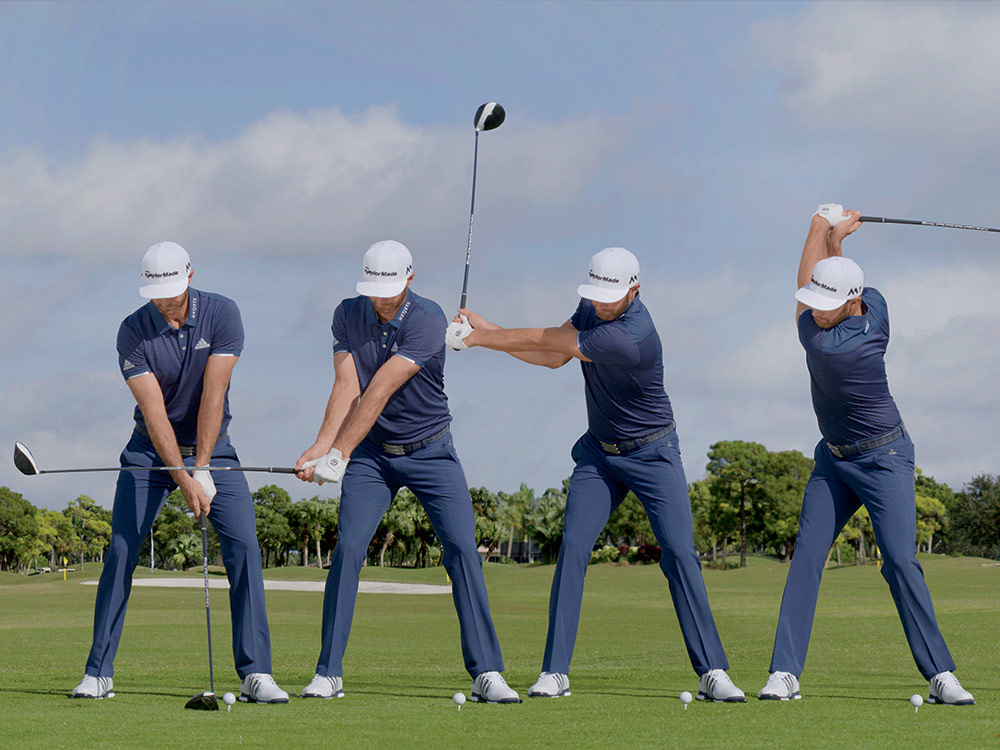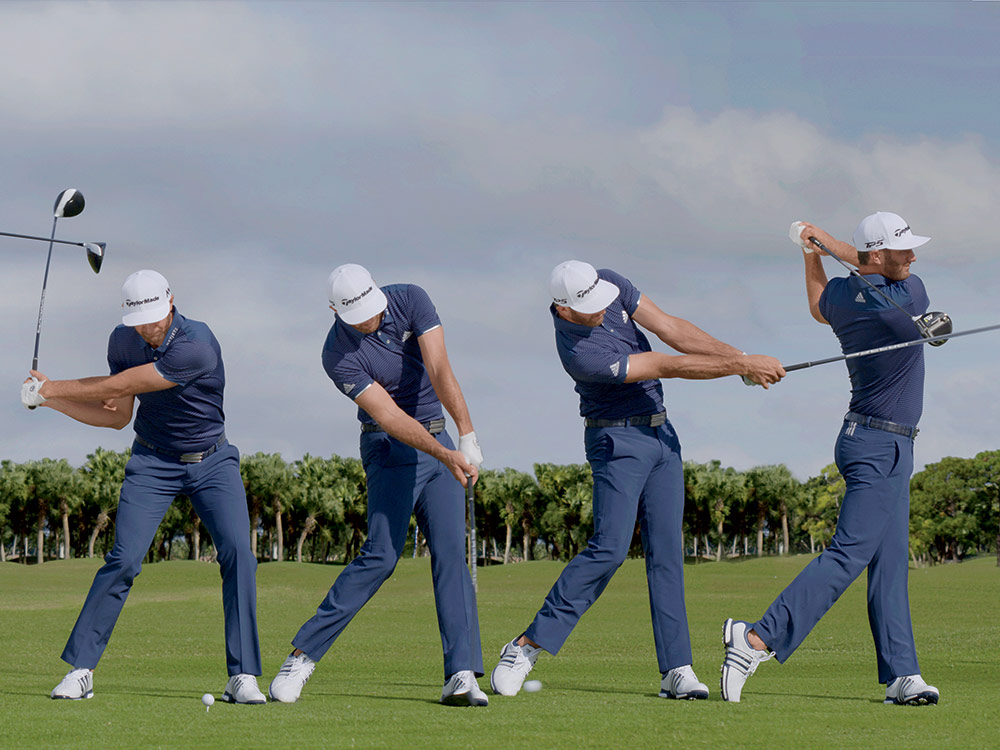Only a few tour pros have a shot that can make other tour pros stop what they’re doing on the range and have a look. Dustin Johnson has one.
Some golfers hide big power in a deceptively compact package. But Johnson is built like a basketball guard, so the 310-metre lightning bolts he hits with his 121-mile-per-hour clubhead speed don’t seem that surprising.
His US PGA Tour Player of the Year season in 2016 came in big part after moving away from a more volatile draw to a consistent baby fade. “I don’t try to fade it,” Johnson says. “I just set up a hair more open, aim at the left side of the fairway, and I swing. If I’m working to make the ball go left to right, something is off.”
Not much was off last season when he won three times, including the US Open, led the tour in money, scoring and birdies, and was second in driving distance and strokes gained off the tee.
“He probably drove it better than anybody all year,” says Butch Harmon, who has worked with Johnson since 2010. “I think he’ll have an even bigger year this year.”
So far, it’s hard to disagree.
– Matthew Rudy
Creating Space
Johnson’s swing is among the biggest and fastest on tour, and it requires a foundation that can handle that extra horsepower. “He’s very athletic at address in that nice, wide stance,” says his coach, Butch Harmon. “His upper body is angled a little back, which sets his head behind the ball and gives his left shoulder room to turn.”
The Right Shift
One of Johnson’s tendencies is to leave his weight on his left side going back – which can cause him to lift the club too abruptly. Harmon says better knee action will help any player make a good weight transfer. “When DJ gets that left knee moving in and not towards the ball, his weight moves to his right side perfectly.”
Fully Torqued
Johnson’s bowed left wrist, which shuts the clubface, is his swing’s signature. But notice his windup, Harmon says. “His hands are high, and his head has rotated away from the target, which lets him make a massive shoulder turn. From there, he knows he has to move left and fully unwind, or he risks hitting a hook.”
Ground Game
Copying Johnson’s swing isn’t easy, but there is one part you can steal for your game: his smooth transition from backswing to downswing. “Look at how his left hip moves towards the target,” Harmon says. “This shows he’s making his transition from the ground up. Also, his footwork is very quiet.”
Full Throttle
There’s no laying up with this swing, Harmon says. “His right heel is leading his right toe at impact, so there’s no hang back. His head is rotating towards the target, which helps him keep turning through with his body. And look at that firm left wrist. My dad used to say that wrist should feel like steel, not linguine, when you hit the ball.”
Watch It Go
One indicator for Harmon that this sequence is perfect is Johnson’s ideal finish. “Dustin is straight up and down over his left foot. You can see there’s no weight scrunched down on the toe of his right foot,” Harmon says. “And his right shoulder is closer to the target than his left, proving he made a great body rotation.”

Pro-file
Dustin Johnson
32 / 193cm / 86 kilograms
Columbia, South Carolina
Driver
TaylorMade M1 10.5 degrees
Ball
TaylorMade TP5x



